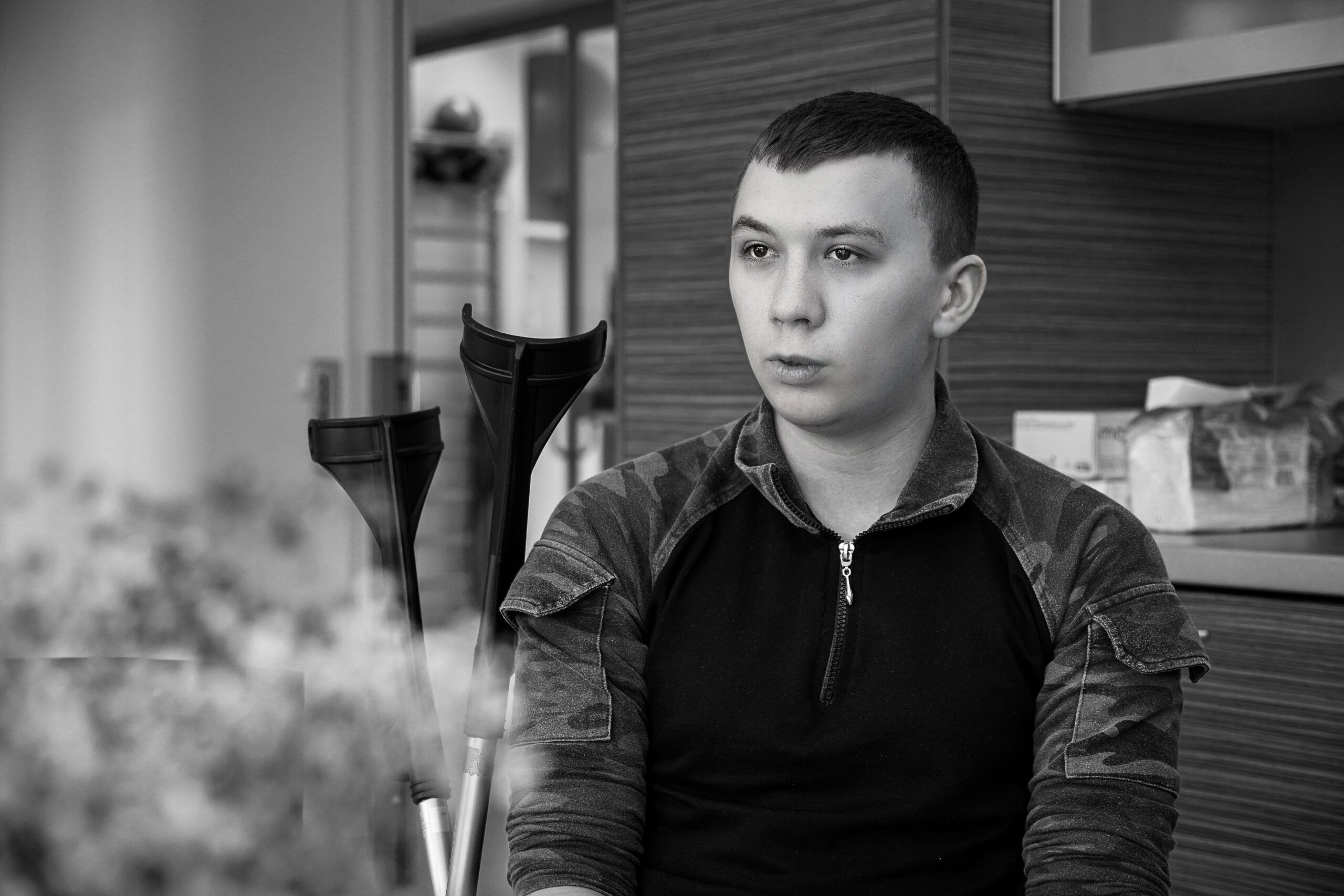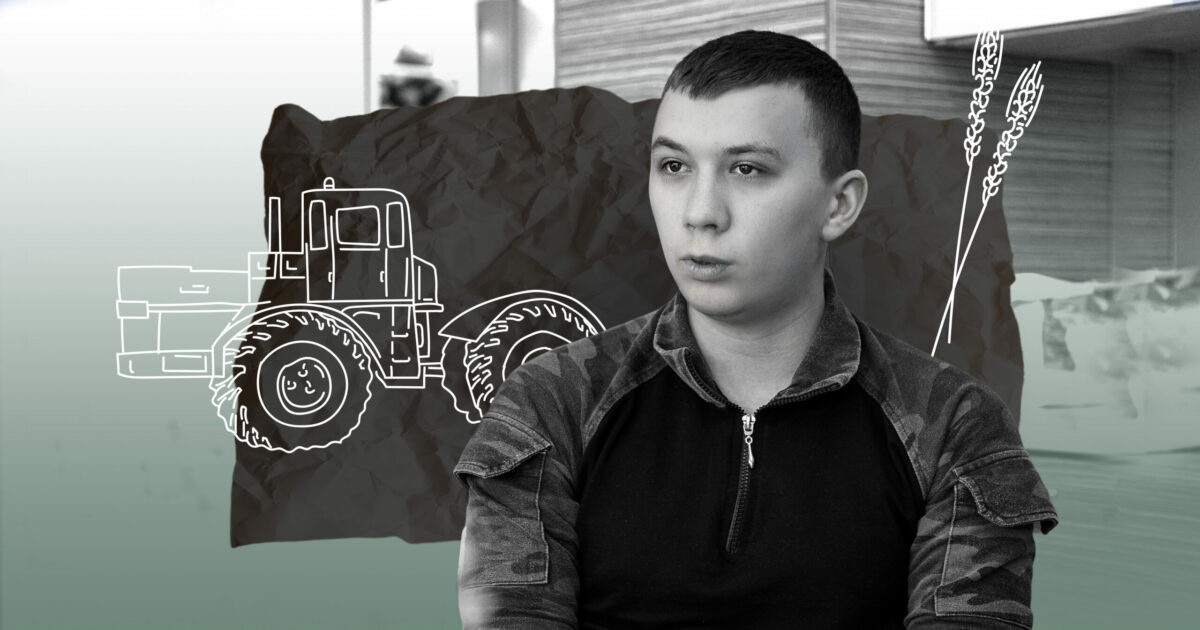
This year, on January 25, Polyarenko took part in the storming of Chervonopopivka in the Luhansk region.
"We were like blind people without air reconnaissance. The battle with direct contact lasted nine hours. It was like a "disco" — we were bombarded by artillery and then fired upon by two Russian drones. There were some casualties, and almost all of us were injured," says the soldier.
Polyarenko lost his leg due to enemy shelling. Comrades evacuated him on two machine guns until they dragged him to an armored personnel carrier with other wounded. Polyarenko does not remember well what happened later that day.
The soldier was immediately evacuated to Kramatorsk, where he had his first operation, and on the second day, January 26, he was in the hospital in Dnipro and later — in Kyiv. There, doctors performed several surgeries to save his knee, which was successful.
The Kyiv hospital did not become the final point of rehabilitation. In a few months, the soldier was sent to Lviv. There, Polyarenko received the award For Courage of the III degree, personally presented to him by President Volodymyr Zelensky. After that, another hospital in Truskavets awaited.
There, the patients spent time in beds, asking doctors how to get prostheses. However, it quickly became clear that too many people have lost limbs, and the state itself cannot cope with such a large number of those who need prostheses. "Both I and other boys lying in Truskavets began to independently look for opportunities to get prostheses," Polyarenko shares.

The soldier quickly realized that the state itself cannot cope with the number of wounded, so it is necessary to go to benefactors.
Later, the soldier got into the prosthetics program from the Government of Estonia and the BGV Charitable Foundation. On his twentieth birthday, he ended up in a hospital in Tallinn. In Estonia, Polyarenko began to be actively prepared for prosthetics. Together with specialists, he worked out the muscles of his legs every day and got used to the new limb — he learned to walk, properly lean on his leg, and climb stairs.
"Of course, it was difficult to be away from home. Being abroad in a hospital and not on vacation is quite sad. However, there, in Estonia, the treatment was wonderful," Polyarenko recalls. From Monday to Friday, a physiotherapist came every day. The soldier worked out with him, walked near the hospital, and did various exercises. "Putting on a prosthesis for the first time was unusual. At first, it was uncomfortable without crutches, but it was a matter of time. Soon, I will be able to move fully," the soldier shared with Rubryka.
A month later, Polyarenko returned home. His family met him there — his mother, father and grandmother. The soldier has already almost adapted to the prosthesis. Now, he goes for walks, rests, and does sports.
Polyarenko is not certain about his future because, due to amputation, he will not be able to continue his service in the ranks of the Ukrainian army, although he had planned to work as a military instructor until recently.
"I was told to forget about the military uniform, but I try not to lose heart. I think I will do business in the future."

The Polyarenko's future now depends on his rehabilitation.
The series of materials Faces of Strength was created within the framework of the special project of the Ukrainian Charitable Foundation BGV and solutions media Rubryka as a way to express gratitude to the Republic of Estonia for the systematic support and with great hope for the continuation of the program on prosthetics of Ukrainians. You can support the prosthetics of Ukrainian defenders by clicking HERE. Your contribution will go towards covering logistics costs for program participants.
Author: Maryana Lastovyrya

Yevhen Ovchynnykov: "This program works to help military personnel regain the meaning of life"

Artur Mylin: instead of going to Canada, he went to war

Taras Vynarchuk: the stupidest joke and a chance to make a dream come true






